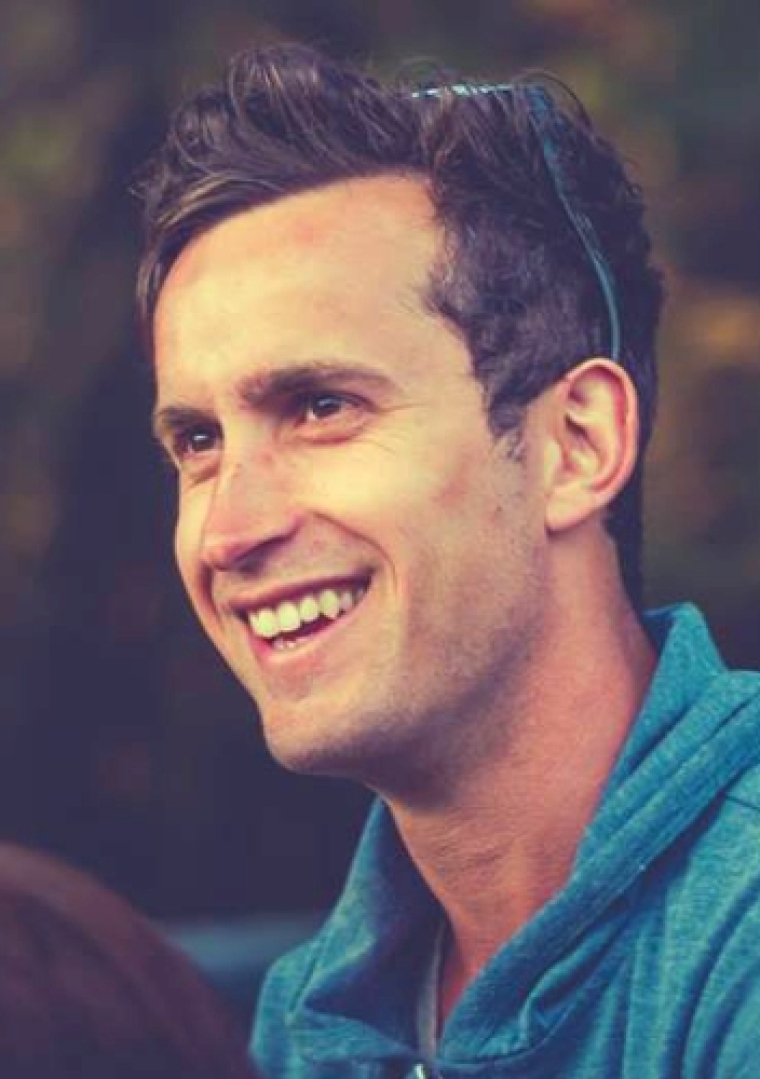

I read some motivational books recently that were very insightful and gave useful tools to live a better life. The self-help book catalogue is huge. Everyone wants to improve and get better in life, everyone wants to live up to their potential and be free to be their true self. It's all very inspiring and I'm not knocking any of it, in fact I've tried to apply some of what I learnt.
However, I was left thinking that if winning at life were as easy as following certain steps, reciting quotes and readjusting your life with helpful tips and goal setting then why aren't there far more awesome and inspiring people out there? The truth is, from what I've experienced, life is really hard for a lot of us. There seems to be an awful lot of sadness, loneliness and depression about, so surely it's not just a matter of trying harder while taking in more information.
What's missing? This is something that's intrigued me ever since putting those books down. We have so many tools, but we all struggle in so many areas. Some people seem to be able to clear the fog from their lens, and see life from a bigger perspective, they are able to rise above the problems that life throws at them. Others, sadly get swamped, and these people are just as smart, just as talented and loved as the ones that don't seem to struggle.
I know it's a very broad spectrum, as people go in and out of bouts of depression and hardship, I understand there are ebbs and flows that come with the journey, and everyone struggles to a degree.
A question that has been widely talked about on the web in recent times is, why do people who have so much worldly wealth, talents and achievements still commit suicide? These questions have been thrown around since Robin Williams committed suicide just over a month ago, and at the very least I think it's worth talking about this some more.
The facts of suicide
From motivational books to suicide... that escalated quickly. Usually the topic of suicide is best swept under the rug. Suicide is the last thing anyone does in life, and regrettably it's the one thing people always remember over all the good stuff that person did in their life. It's a waste, it's sad, it's horrific, and it's a conversation like politics and religion that can be a little bit too awkward or maybe too deep and dark to address at the dinner table.
I'm not going to pretend to know anything about the cause of suicide which is often depression, because I'm not qualified and I've never had any serious episodes of depression myself. I want to mention it, but it's unfair to try unpack such a complex condition in so few words.
Depression from what I understand feels as physical and tangible as a broken leg. It's described as hell, a pit, a gloomy relentless shadow that cripples and causes people to feel there is no other option but to kill themselves. This clouded view of life and self is a serious thing, and it causes all sorts of pain that I don't pretend to know, so I'll leave it at that.
What I do know
As a journalist there are rules about what you can and can't say about suicides, as there is a fear that reporting the how and why of a suicide might spur on others who are contemplating the terrible act themselves. New Zealand has the 15th highest suicide rate in the OECD with almost 500 deaths a year, and the rate has dropped by 30% from the worst year on record in 1998. Australia has the 24th highest suicide rate, with Korea sadly having the highest rate of suicide in the OECD.
Suicide is not the worst way to go, but it's often the worst way for someone else you know to go. It haunts families and loved ones left behind for years after the act is done. The world should talk more about suicide, and the message of seeking help through connection and transparency should be wider reaching.
Glamorising and condemning suicide
In reading some of the responses to Robin Williams's death online, I was struck by the polarising degrees of reactions. There have been many honest and helpful messages of condolences and heartfelt sadness expressed, but some responses were somewhat fascinating.
Jason Alexander said in a tweet: "Ah Robin, I'm so sorry the earth couldn't stay worthy of you. Hope happiness awaits you."
The Academy (the motion picture awards) tweeted a picture of Disney's Aladdin hugging Genie (who was voiced by Robin Williams), with the words: "Genie, you're free."
I want to come back to that notion of 'you're free' soon.
Other unhelpful responses come from people who seem to want to stir the pot, or maybe have a self-righteous streak in them. They pointed out that suicide is a choice and inferred that depression is not what killed Mr Williams, but indeed his own choice. To this thought, someone much wiser than me responded:
"As with anger, suicide is a reaction to something else. To overlook that or negate that, is to force a damning judgement. This does not mean, that we must then play the pure victim card and say that he had no other option other than suicide. More accurately, he probably couldn't see his other options clearly."
Coming to grips with suicide is complex, and the reactions to suicide are vastly varied. It's scary when you consider that society in subtle ways can even glorify the act. There's a thing called the '27 club' which is a big list of famous entertainers and celebrities who all died at the age of 27, many of whom committed suicide. Sadly those celebrities who choose to end their lives will inadvertently pave the way for others. I also found this quote from Ryan Gosling:
"I think about death a lot, like I think we all do. I don't think of suicide as an option, but as fun. It's an interesting idea that you can control how you go. It's this thing that's looming, and you can control it."
Where to from here
So I've asked a few questions and highlighted some varying views, but one idea I want to look at, is that even though you have the whole world at your feet, hopelessness and despair can creep in and cloud the mind and the hearts of everyone. People we'd think would be in the best position to deal with it still suffer intense feelings of loneliness, pain and fear.
From every walk of life, from Pastors to students from mothers to musicians I'm sure we all know someone who has taken the option of killing themselves. I personally know of two people. Some like Kurt Cobain and Whitney Houston make the news, but most suicides become a dark guarded memory for those left behind, something people don't talk about or simply just a statistic.
Blurred lines
For my job I need to be in the office at 5:15am, so I venture outside from the warmth of the house to enter the cold and sometimes the rain. In these winter months as I drive, I turn the heater on full and wind down my windows for the first couple of intersections so I can see any oncoming cars and early starters like me in the dark. I also need to clear the vapour that builds up on my glasses that comes from being stuck between the cold air and my warm face. I have to legally wear the glasses while driving. It often takes about three or four minutes down the road of blurred and murky driving to then be free of condensation and other haze, once the air con has worked its magic.
It's an old metaphor this one, but I've been learning that when I pray and want to move closer to God, just like my windows and glasses in the morning I must first wipe the fog away. I can't meditate and concentrate without first being silent, turning off the distractions as I try to mute the thousands of defocusing thoughts I have every minute. Clearing the fog is also essential with our inner thoughts, it's so easy to be clouded by fear or manipulated by lies that are often hidden in our subconscious. Classic lies that tell us we're unworthy and unlovable, unless we perform or meet a certain standard. These lies can easily without us noticing become a default, or go-to mood or way of thinking.
Richard Rohr says, "Most people become their thoughts. They do not have thoughts and feelings; the thoughts and feelings have them!"
The inward gaze of cleansing through meditation or contemplative prayer may sound weird and mystical, but I look at Jesus' life and I see a man who spent much of his time in quiet and secluded union with his father in prayer. When you spend time in prayer and meditation you can practice the ability to stand away from yourself and listen and look with a kind of calm, non-judgemental objectivity. You may learn the ability to see a problem for what it's worth, with distance and space and a sound mind. To honestly look at your own situation and say, what is my agenda? What are my classic tendencies in this situation? What am I missing here? What are my angers?
To sum up
There are plenty of helpful tools to transform our thinking, and I don't want to spout off motivational dribble that people can't relate to, or have heard before. I want to see people succeed and to grow from the hardships that will inevitably come to us all. I don't want to condemn or make light of such a serious topic like depression or suicide.
But I'd like to suggest, that this God I'm getting to know a little more, he likes to meet us exactly where we're at, especially in our deepest pain and suffering. Jesus desires to restore us, when we're at our lowest points. In a weird way our weakness will point us to the one who wants to make us strong. In the bible it says that Jesus came to seek and save the lost, not the strong and the ones who have it all together. Jesus came to give life to those that feel like they can't handle it any longer. He came to be the source of our deepest joy.
Some see death and the end as a chance to be free, but I think true freedom comes from discovering our radical and overwhelming connection to God.
Brad Mills enjoys the outdoors and almost any sport... For a day job he's a journalist who works at the Rhema Media in Auckland New Zealand.
Brad Mill's previous articles may be viewed at www.pressserviceinternational.org/brad-mills.html